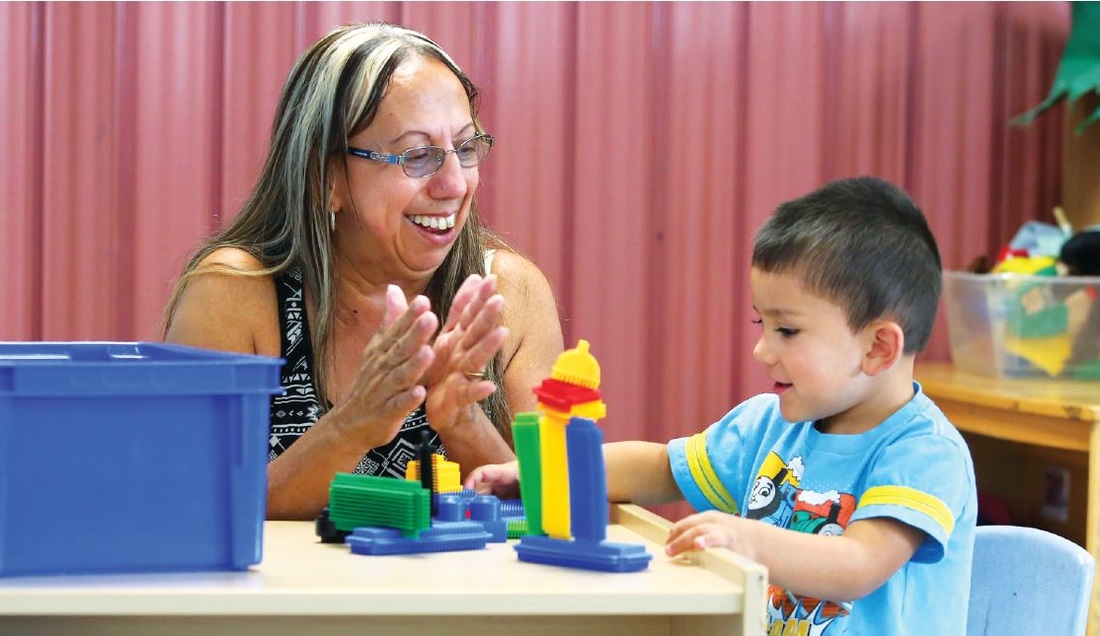Therapy gives family the tools to address behavior
Julian’s delays caused him to feel frustrated, and at such a young age he lacked the verbal skills to adequately express himself. Instead, he would respond to frustrating situations with violent and self-destructive tantrums. As Julian’s sole caregiver, these tantrums took quite a toll on Millie.
The therapy that KCBH provides not only addresses Julian’s behavioral problems, but also better equips Millie to respond to his tantrums. A typical therapy session includes allowing Millie and Julian to play together while the therapist observes from behind a one-way mirror and speaks into a microphone that is connected to an earpiece in Millie’s ear. When Julian begins to get frustrated at some point, the therapist coaches Millie and provides a script for her to repeat.
One method that the therapist and Millie have found to be very effective in de-escalating Julian’s tantrums is responding with direct commands, like, “Please give me that toy,” using a calm, low-toned voice.
“[The therapist and I] talk a lot about repeating what Julian says back to him so that he feels heard, and praising his positive behavior as often as possible,” Millie says.
The therapist has also coached Millie on strategies for discipline, like giving a clear warning that disobedience will result in a time-out, and how to follow through when necessary.
This type of therapy in which the entire family receives service instead of just the patient is considered part of the wraparound” services that King’s County Behavioral Health offers through its Children’s System of Care. Millie notes that she’s seen marked improvements in Julian’s behavior since they started therapy, including more cooperation, fewer violent outbursts and a decrease in frequency of night terrors.
“I am very happy with the therapy that we’re receiving, and I will continue to participate as long as Julian qualifies for services,” she says.
Support for the Whole Family
- School-based therapy
- Intensive outpatient individual and group therapy
- Wrap-Around services, which are individualized, comprehensive, and community based
- Therapeutic Behavioral Services (TBS), offering early and periodic screening, diagnosis and supplemental treatment for children and youth with serious emotional problems
- Universal Screenings, which are facilitated by trained staff using professional screening assessment tools and conducted to identify early mental health or developmental issues
- Case Management Services, as needed
Behavioral Health’s partners in the Children’s System of Care currently include Family Builders Foster Care Agency and Kings View Counseling Services.


 RSS Feed
RSS Feed